I’m aware that there’s an ironic aspect to it, but the cliches in Tsurezure Children are starting to bother me a bit. Imoutos and abusive girls are about as grating as anime romcom tropes get, but I suppose when the trope is integral to the plot it’s unavoidable. The cliched situations are the point, so there’s no getting away from them.
The abusive girl is half of the “Short-distance Relationship” couple that opens this week’s episode. I figured osananajimi were going to be up to bat soon, and indeed they were. These two are fine I suppose, apart from the hitting – the gag here is that she thinks they’ve been going out for the past year but he doesn’t (he thought her confession was one of their endless string of manzai bits). The clever part is that the reason for the confusion is that their relationship after the confession was indistinguishable from before it – so how the heck was he supposed to know?
“I Hate Sempai” looks to be pretty much a straight comedy thread, though as it gives us Namikawa Daisuke cutting it up as a troll who tortures his kouhai I’m not complaining. Of more interest is the bus chapter – a boy with zero self-esteem saves a girl (his crush, as it happens) from a groper on the bus, and can’t believe it when she invites him out for a “date” as thanks. Despite his being an “uggo” she genuinely seems to like him – though he’ll take some convincing of that. Last up we get a return by umbrella boy and no self-confidence boy’s female counterpart – she too finds it inconceivable that a cute person could be attracted to her. These wires are definitely crossed – he thinks he’s talking about their relationship, she’s talking about her cleaning skills.
My favorite part of Tsurezure Children is the premise – the massive communications breakdowns when pubescent boys and girls talk to each other, and how hard it is to bridge that gap. Taking that universalism and looking at it through many manifestations is a really clever idea for a series. I’m not as enthusiastic about the execution, which is inconsistent – but that’s to be expected in a series that hopscotches back and forth among so many couples. This series does have a real insight into early teen relationships and Heaven knows that’s a rarity in anime, so I’m certainly hoping to be in it for the long haul. I think I will be, as long as the more obnoxious tropes – no matter how integral to the story they may be – don’t become unbearable.


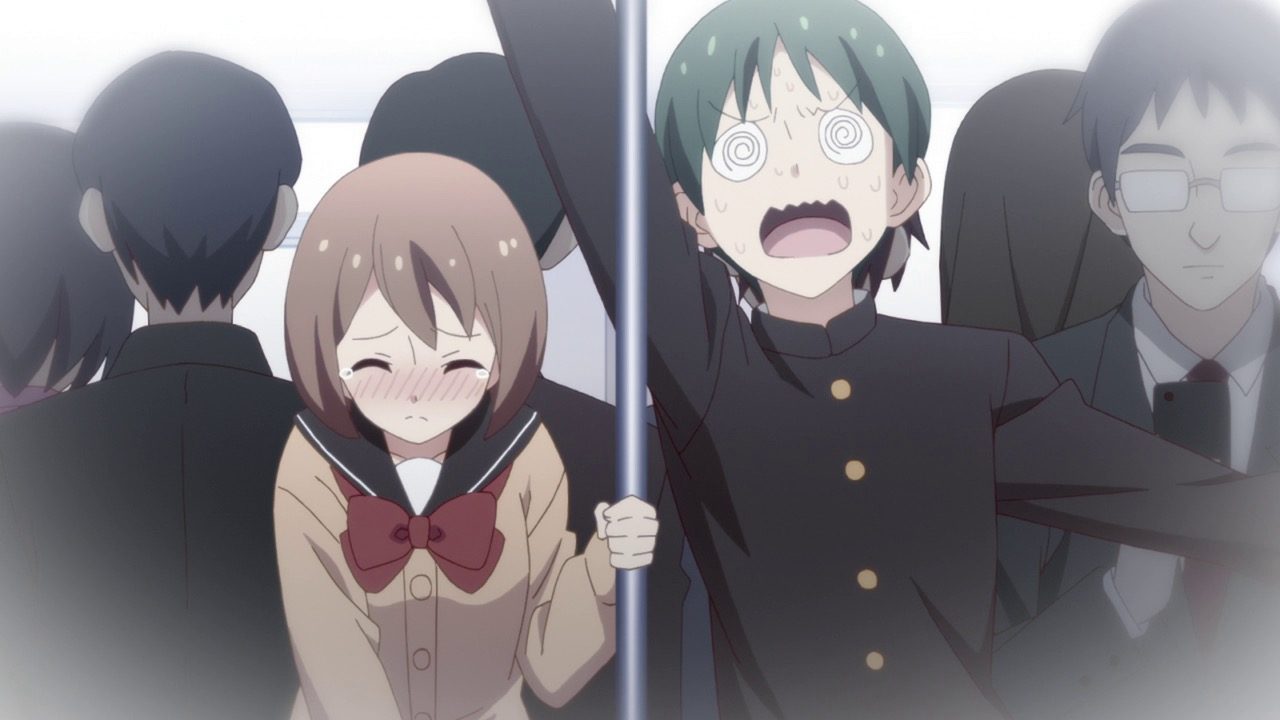

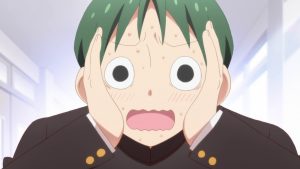


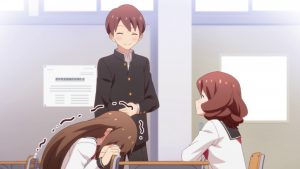










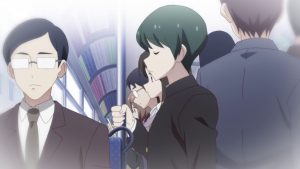

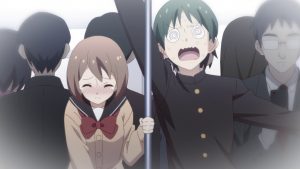






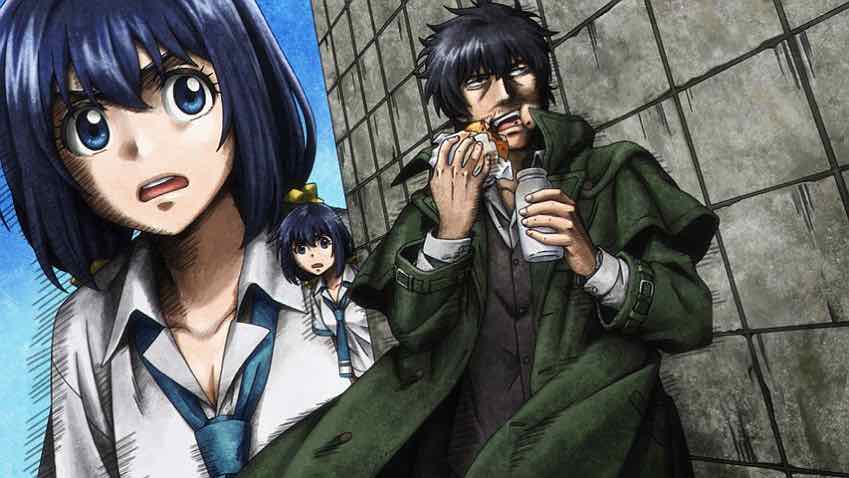
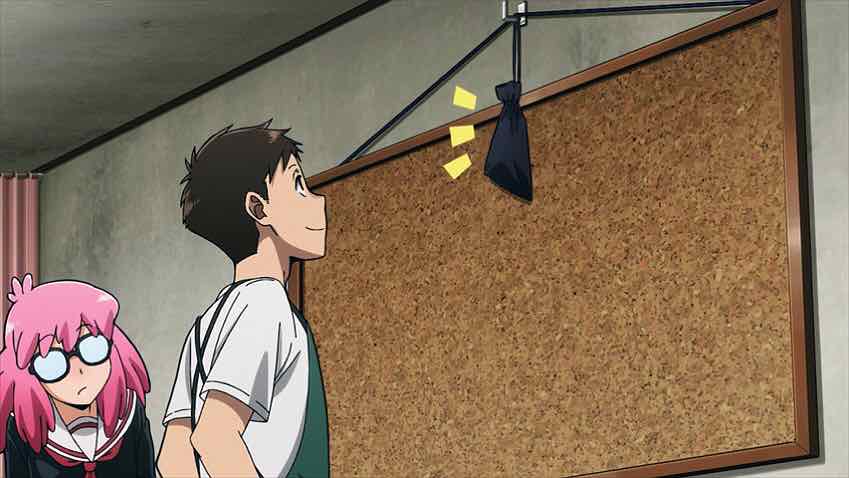
Simone
July 19, 2017 at 1:00 amI didn’t even consider the girl from the first couple as ‘abusive’ really. They called them ‘comedy routines’ themselves, after all. To me the point that came across is that they were acting all buddy-buddy – exchanging quips and play-fighting the way two best bros could – and that of course didn’t work well with the kind of relationship she had in mind (though again here shows the typical adolescent nature of all parties involved, who don’t just decide that they can act all buddy AND kiss at the same time if that’s what works best for them).
Guardian Enzo
July 19, 2017 at 7:54 amPunching in the face is punching in the face.
Simone
July 19, 2017 at 11:03 amWell, but as we all know, in anime, the strength and damage caused by a punch are inversely proportional to its comedy value, whereas the momentum communicated to the person hit is directly proportional. I don’t think it’s meant to be intended as *literal* violence, it’s an exaggerated and stylised comedic routine.
(it gets to slightly disturbing levels in this season’s Aho-ga though, I’ll admit)
DP
July 20, 2017 at 12:07 amI have to say that I find the writing in this show (so far) to be about as sharp and perceptive as any I’ve seen in ages. As is often noted, cliches are cliche for a reason, and I think they’re doing an incredibly excellent job here, over-the-top violence or not.
Plus, the whole concept of these short vignettes about adolescent romance is something you would absolutely never see in an American cartoon, TV show or movie. Anime’s obsession with high school can be exasperating, but shows like this really redeem it for me. Tiny budgets can perhaps be more liberating for chance-takers than massive ones. I just hope it can keep up its excellence for a whole season.
Simone
July 20, 2017 at 1:16 amTo be precise, I think these guys are in middle school, not high school. Your point still stands though!
Guardian Enzo
July 20, 2017 at 7:27 amI think the concept is sharp and perceptive. I would argue that the writing is only intermittently so. But I’m hopeful.
And yep, middle school here. Which suits the material much better.